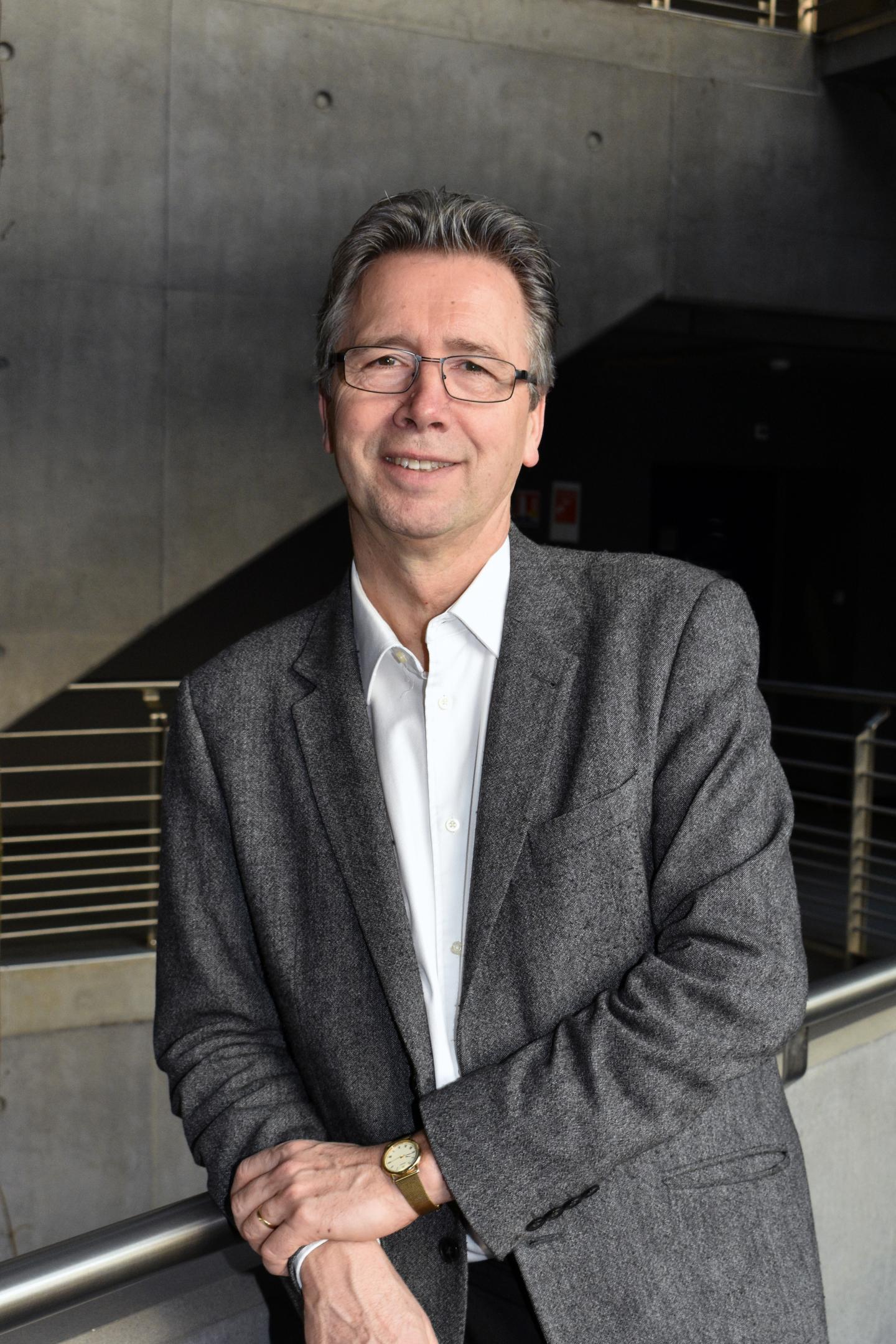
Credit: © Caroline Schneider
This year’s CNRS Gold Medal, one of France’s most prestigious scientific prize, has been awarded to the Franco-Norwegian physical chemist Thomas Ebbesen. He specializes in nanosciences, a cross-disciplinary field that covers a variety of scientific areas that include carbon materials, optics, nano-photonics and molecular chemistry. His discoveries have notably enabled technological breakthroughs in optoelectronics for optical communications and biosensors. As Professor at the University of Strasbourg, he headed the Institut de Science et d’Ingénierie Supramoléculaires (ISIS, CNRS/University of Strasbourg) until 2012. He is currently Director of the University of Strasbourg Institute for Advanced Study (USIAS).
Thomas Ebbesen was born on 30 January 1954 in Oslo, Norway. After receiving a bachelor’s degree from Oberlin College (USA), he completed his PhD in physical photochemistry in 1980 at the University Pierre & Marie Curie in Paris. The following year, he joined University of Notre Dame in Indiana (USA) and developed collaborations with Japan, and notably with Tsukuba University. In 1988 he settled in Japan, working in the research laboratory at NEC, the industrial computer and telecommunications giant. In 1996, Jean-Marie Lehn, winner of the Nobel Prize for Chemistry in 1987, convinced him to join his team at the Institut de Science et d’Ingénierie Supramoléculaires (ISIS, CNRS/University of Strasbourg) and he became Professor at Strasbourg University while continuing to maintain strong links with the NEC laboratories in Japan and Princeton (USA). In 2005, he took over from Jean-Marie Lehn as Director of ISIS, and held this position until 2012 when he was succeeded by Paolo Samori. He is now Director of the International Center for Frontier Research in Chemistry[1] (icFRC) and since 2012 has been Director of the University of Strasbourg Institute for Advanced Study (USIAS).
With an outstanding international reputation, Thomas Ebbesen has authored many fundamental and pioneering discoveries in the nanosciences. His highly cross-disciplinary work has been recognised by a variety of scientific communities, producing articles that have become references in their field[2] and enabling technological, scientific and conceptual breakthroughs.
Throughout his scientific career, Thomas Ebbesen has worked on a broad range of topics, but particularly on carbon materials, nanotubes and fullerenes. For example, he developed a method for the large-scale synthesis of carbon nanotubes and studied the physical, chemical and mechanical properties of these materials. In 1998, he proved the existence of a new optical phenomenon: extraordinary optical transmission, discovering that light can pass with considerable efficiency through apertures that are smaller than its own wavelength, contrary to what had previously been understood.
More recently, Thomas Ebbesen has been focusing on molecular systems involving strong light-matter coupling, and his team has demonstrated for the first time that chemical reactions can be accelerated or decelerated by the interaction of reagents with electromagnetic fluctuations within an optical cavity, and selectively favour a given product. These surprising findings have given rise to the new field of “polaritonic chemistry” which is the subject of growing interest throughout the world.
Alongside his academic work, Thomas Ebbesen’s involvement in bridging the gap between research and industry has led him to file over 30 patents, as well as become the co-founder of the start-up n-TEC, which specialised in carbon compounds.
A member of the Norwegian Academy of Science and Letters since 2003, Thomas Ebbesen was elected a foreign member of the French Academy of Science in 2009 and of the Royal Flemish Academy of Belgium in 2011. His career has been marked by several important awards: he received the 2005 France Télécom Prize from the French Academy of Science and two ERC Advanced grants in 2008 and 2018. In 2011, the EuroPhysics prize rewarded his work on carbon nanotubes and he also received the Quantum Electronics and Optics Prize from the European Physical Society in 2009. Finally, in 2014, Thomas Ebbesen was awarded the Kavli Prize for Nanoscience, the highest distinction in that field, for his work on subwavelength optics and his discovery of the phenomenon of extraordinary optical transmission.
He will receive the CNRS Gold Medal on October 24 in Paris during a special ceremony celebrating 80 years of the CNRS. The CNRS Gold Medal is one of France’s most prestigious scientific prizes. Each year since its creation in 1954, it rewards the careers of one or more scientific personalities who have made an exceptional contribution to the vitality and reputation of French research. The most recent winners of the Gold Medal include: Gérard Férey, chemist, in 2010; Jules Hoffmann, biologist, in 2011; Philippe Descola, anthropologist, in 2012 ; Margaret Buckingham, developmental biologist, in 2013; Gérard Berry, computer scientist, in 2014; Eric Karsenti, biologist, in 2015; Claire Voisin, mathematician, in 2016; Alain Brillet and Thibault Damour, physicists, in 2017, and Barbara Cassin, philosopher, in 2018.
###
[1] http://www.
[2] 2 articles cited more than 5000 times, 11 articles more than 1000 times.
Media Contact
Alexiane Agullo
[email protected]
Original Source
https:/




